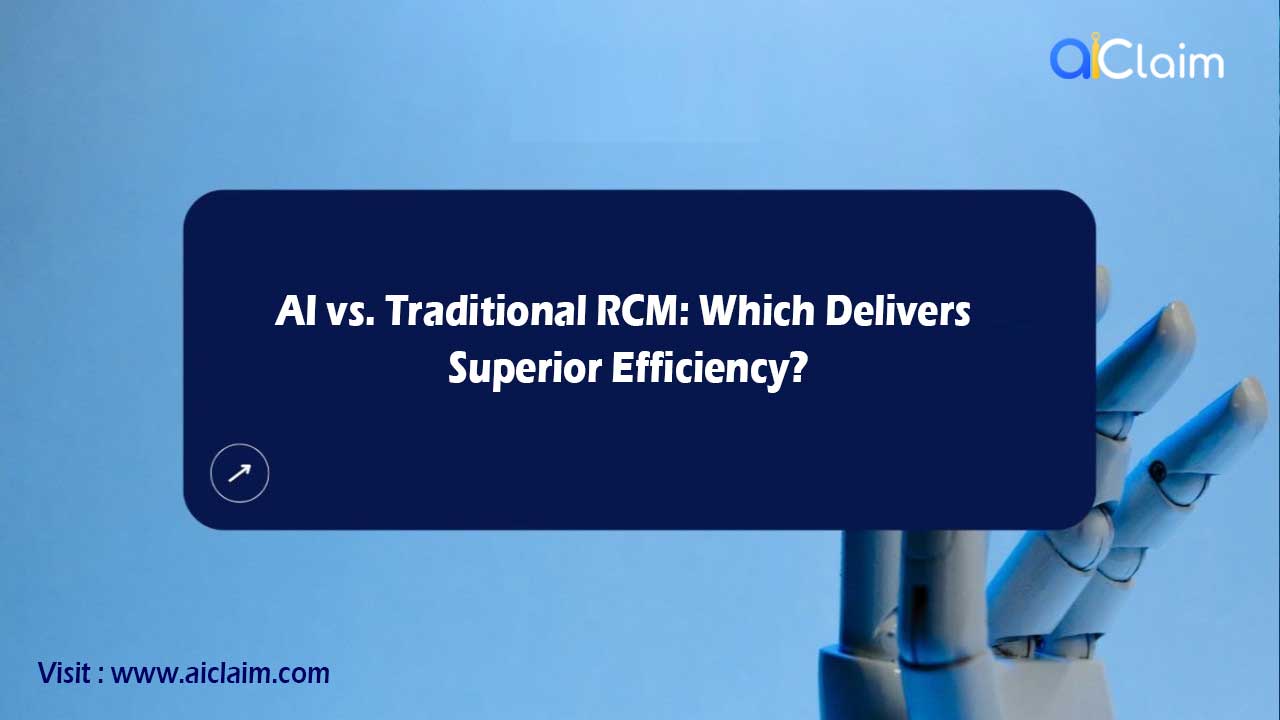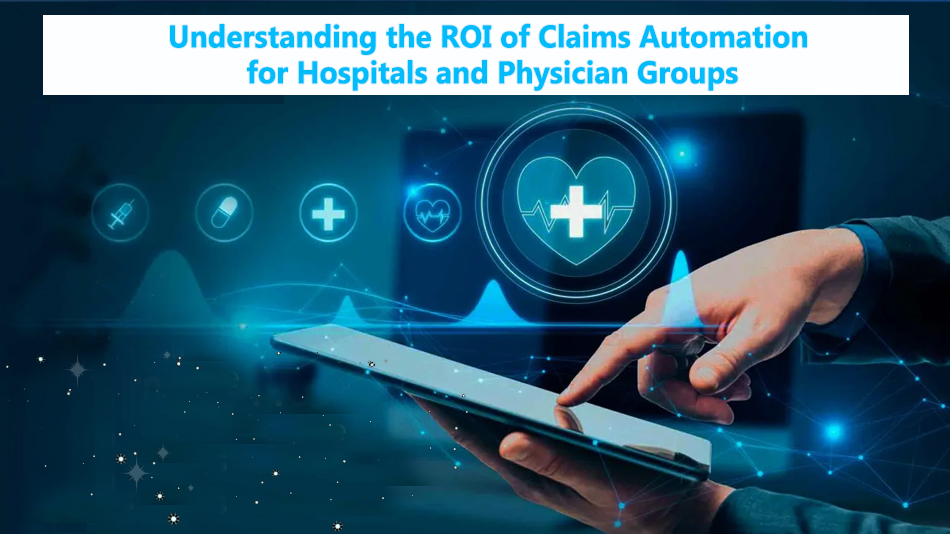Introduction
In the ever-evolving landscape of healthcare finance, Revenue Cycle Management (RCM) plays a crucial role in ensuring smooth operations. Traditional RCM methods have long relied on manual processes, leading to inefficiencies, errors, and delayed reimbursements. However, with the advent of AI-powered revenue cycle management, healthcare providers are witnessing a transformative shift. This blog explores the key differences between AI-driven RCM solutions and traditional RCM, evaluating which approach is more efficient in modern healthcare.

The Limitations of Traditional Revenue Cycle Management
Traditional RCM relies heavily on human intervention, manual data entry, and rule-based decision-making. Some of the challenges associated with traditional RCM include:
- Time-Consuming Processes: Manual billing and claim processing slow down revenue cycles.
- Human Errors: Inaccurate coding, missed claims, and data entry mistakes lead to claim denials.
- Delayed Payments: Inefficiencies in claim submissions result in slower reimbursements.
- Limited Predictive Insights: Traditional RCM lacks predictive analytics for RCM, making it difficult to forecast revenue trends.
- High Operational Costs: Hiring and training billing staff increases overhead expenses.
How AI is Transforming Revenue Cycle Management
AI-driven revenue cycle management seamlessly integrates automation, machine learning, and predictive analytics to enhance billing, coding, and claim processing. Here’s how AI transforms RCM with key benefits:
1. Automated Medical Coding & Billing
To begin with, AI-powered automated medical coding significantly minimizes errors, improves accuracy, and speeds up claim submission. Moreover, AI-driven medical billing software ensures compliance with ever-changing regulations, thereby reducing denials. Additionally, smart medical billing solutions simplify processes and enhance claim accuracy, making the entire workflow more efficient.
2. Intelligent Claims Processing & Denial Management
Furthermore, AI algorithms effectively analyze claim patterns, detect errors, and automate corrections even before submission. As a result, AI-based claim denial management proactively identifies potential denials and rectifies them, ultimately maximizing approvals. In addition, AI-powered insurance claim processing speeds up resolution, ensuring reduced payment delays and improved financial performance.
3. Predictive Revenue Cycle Analytics
On top of that, machine learning in RCM enables healthcare providers to accurately forecast cash flow, identify potential bottlenecks, and improve financial planning. Not only does predictive revenue cycle analytics optimize reimbursement cycles, but it also allows for better financial management and proactive decision-making, ensuring sustainable revenue growth.
4. AI-Powered Payment Posting & Reconciliation
Additionally, automated reconciliation through AI-powered payment posting guarantees accurate matching of payments to claims, significantly reducing discrepancies while enhancing financial accuracy. Moreover, healthcare revenue automation ensures a steady cash flow by eliminating unnecessary delays in payment processing, leading to greater efficiency.
5. AI-Driven Prior Authorization
Lastly, by leveraging AI-driven prior authorization, healthcare providers can substantially reduce delays, speed up approvals, and ensure timely patient care. More importantly, AI-enhanced patient billing helps patients better understand and manage their financial responsibilities, resulting in a smoother payment experience.
In conclusion, AI-powered RCM solutions provide a more efficient, accurate, and automated approach to revenue management. With enhanced automation, predictive analytics, and intelligent processing, AI ensures that healthcare providers achieve faster reimbursements, lower denial rates, and improved financial performance.

AI vs. Traditional Revenue Cycle Management : A Performance Comparison
| Feature | Traditional RCM | AI-Driven RCM |
|---|---|---|
| Claim Processing Speed | Slow | Fast & Automated |
| Error Rate | High | Low with Machine Learning |
| Cost Efficiency | High Operational Costs | Cost-Effective Automation |
| Predictive Insights | Limited | Advanced Analytics & Forecasting |
| Compliance & Accuracy | Prone to Errors | AI-Enhanced Precision |
| Revenue Cycle Optimization | Reactive Approach | Proactive Revenue Optimization |
Why AI is the Future of RCM
With the rise of AI healthcare revenue optimization, providers are experiencing increased cash flow, reduced administrative burdens, and improved patient financial experiences. The integration of RCM software with AI not only streamlines operations but also enhances revenue collection efficiency. AI-powered coding and billing solutions eliminate costly mistakes, while end-to-end RCM automation ensures seamless workflows.
Conclusion
While traditional RCM has served healthcare providers for years, it is becoming increasingly outdated in the face of AI-powered revenue cycle management. By embracing AI claims automation, intelligent healthcare billing, and end-to-end RCM automation, organizations can achieve faster reimbursements, reduced errors, and enhanced financial performance.
The future of RCM lies in AI-driven RCM solutions, ensuring that healthcare providers focus on patient care while technology handles financial complexities. Ready to upgrade your revenue cycle? Explore AI-driven RCM today!
Visit Aiclaim.com to learn more about how AI-powered solutions can transform your revenue cycle management.




